EARLALL explores Textiles, Clothing, Leather, and Footwear (TCLF) skills challenges and opportunities across the European regions
15/10/2024
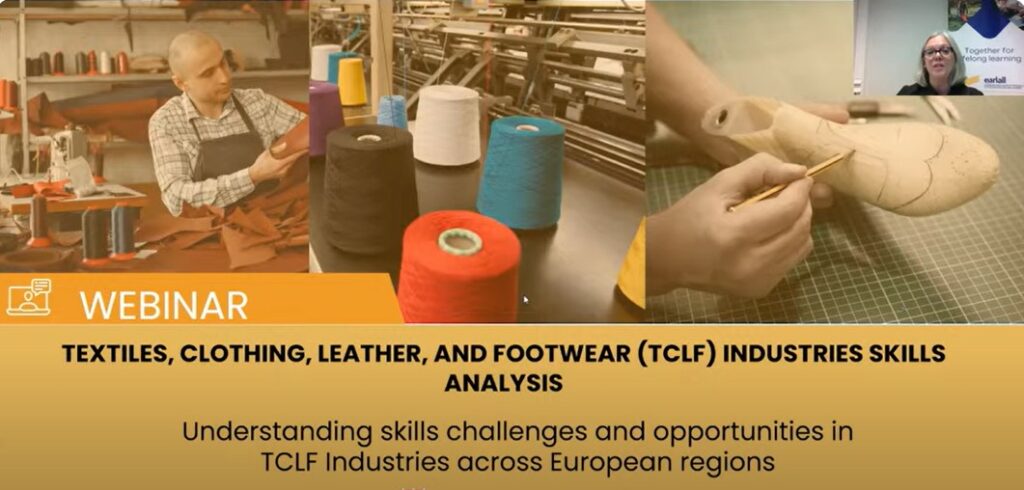
EARLALL continues with its series of webinars focused on exploring the skills challenges and opportunities in different sectors (agriculture, Care, EU blue economy and TCLF, among others) across European regions. These webinars are promoted by the EARLALL Working Group on Skills and Labour Market.
During the Erasmus Days, EARLALL organised a fourth webinar focusing on the skills challenges and opportunities in the Textiles, Clothing, Leather, and Footwear (TCLF) industries on 15 October 2024, gathering participants from regional and local authorities, EU and international institutions, education and training experts and industry representatives. The webinar discussed the importance of skills development in the European Commission’s TCFL industries, with a focus on the need for coordination and awareness campaigns to reach the right people and promote the importance of skills development.
TLCF industries: looking into a sustainable future with a skilled workforce at the European Level
Camilla Winter (Camilla Winter AB associated member and EARLALL Academy coordinator), the moderator, welcomed participants. She then introduced Cornelia Mohor, the European Commission’s policy officer at the DG for Internal Market, Industries, Entrepreneurship and SMEs – Tourism and Textiles, Digital Transformation of Industry Unit, who discussed the ongoing skill supply debate in the TCLF sectors. She highlighted that the main workforce challenges within the sector are: an ageing workforce, Low interest among younger generations, ICT vacancies and the green Skills gap. Shen then introduced the concept of implementation of 3 EU-funded Projects, a crucial initiative aimed at improving research and technological development in textiles. These partnerships aim to address the need for advanced skill sets in the face of technological and digital transformations. She emphasized the European Commission’s focus on skill development in TCLF sectors, particularly through the EU Pact for Skills, which brings together diverse stakeholders to address the need for a skilled workforce. She outlined a €1.2 million action grant aimed at translating this pact into actionable steps at the national level.
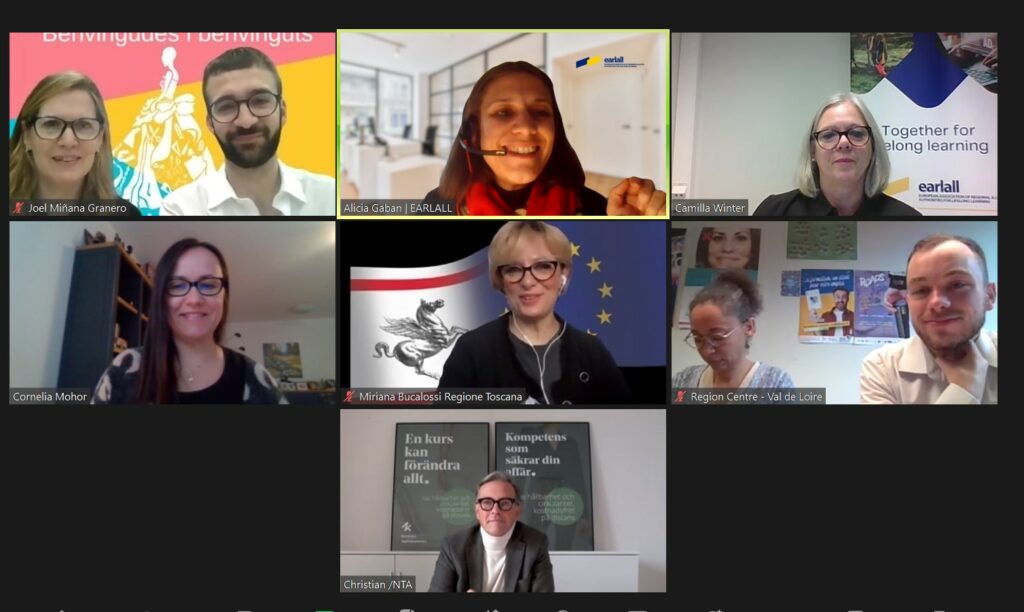
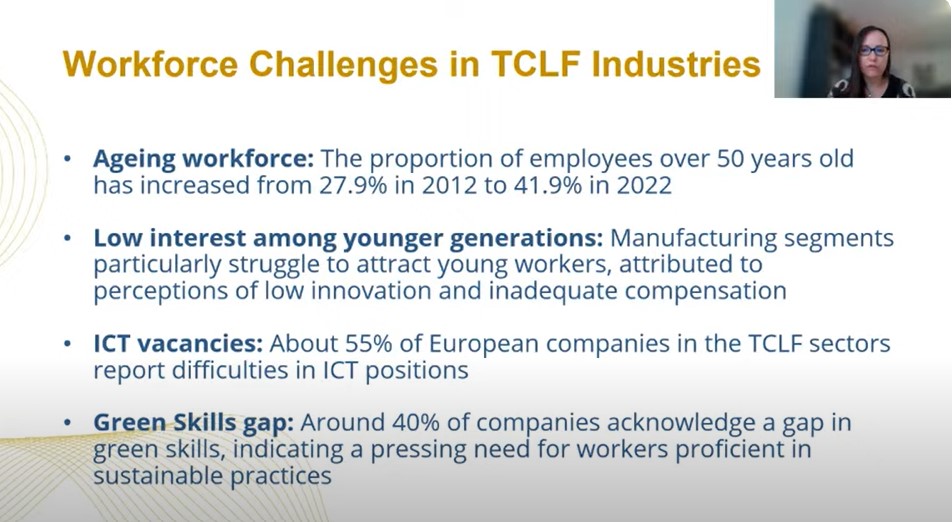
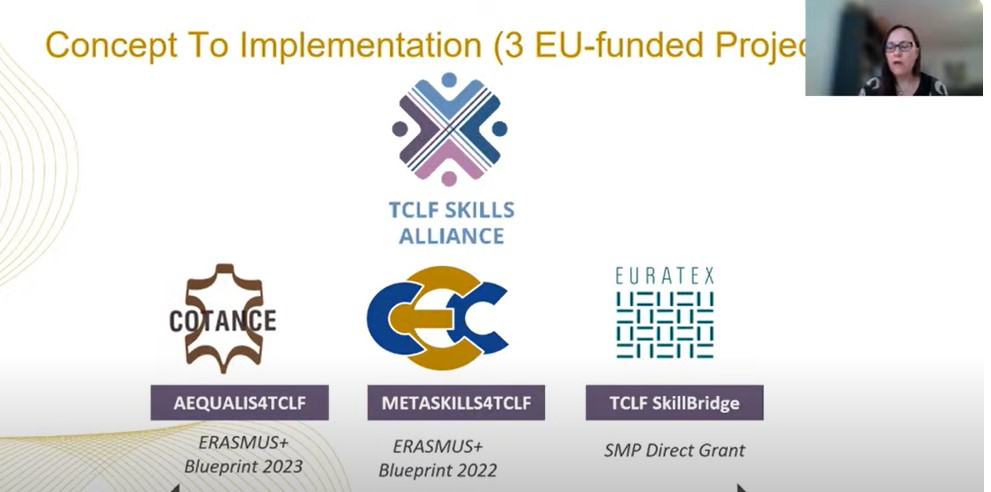
EARLALL Regions sharing TCLF sectors challenges and opportunities
The regional panel included examples from Region Västra Götaland, Catalonia, Tuscany and Centre Val de Loire regions, highlighting various initiatives and projects at the regional level aimed at improving the TCLF sectors, including vocational training programs, digital approaches, and awareness campaigns to reach the right people and promote the importance of skills development.
Nordic Textile Academy: Challenges and Opportunities for the Region Västra Götaland
Christian Lundell, CEO of the Nordiska Textilakademin, discussed challenges the textile industry faces, particularly around skill shortages and adapting to new business models. Christian highlighted Nordiska Textilakademin‘s efforts in reviving lost professions through education and training, with a focus on circular business models. The academy emphasizes local production, sustainability, and the transition toward a circular economy. They also introduced the Textile Fashion Center, a hub that brings together stakeholders involved in transitioning the Swedish textile and fashion industries. The importance of embracing a circular economy to ensure the longevity and competitiveness of the TCLF industries was a key takeaway from their presentation.
Christian elaborated on how the European Qualification Framework (EQF) is utilized to create educational programs, validate skills, and improve job matching. He stressed the importance of lifelong learning to support the industry’s shift from a linear to a circular economy. Additionally, he showcased how micro-credentials are being used to teach specific, high-demand skills, citing a 10-hour course on repairing textile machinery as an example. This approach aims to formalize professions and provide tailored learning opportunities that meet the evolving needs of the industry.
Catalonia’s Textile Industry and Educational Collaboration
The next session of the webinar focused on the Catalonian textile industry, with insights from Mariona Lloveras Llavina and Joel Miñana Granero, Instituto Público Lluís Domènech i Montaner. Joel highlighted the sector’s economic importance in the region and the pivotal role educational institutions play in bridging the gap between students and companies. The institute’s project-based approach, blending theory and practical application, was showcased as a model for preparing students with the skills necessary to thrive in the industry. The collaborative efforts between companies and educational institutions were emphasized as essential for innovation and growth in the textile sector. Mariona presented a successful student project that integrated various textile processes like sewing and printing.
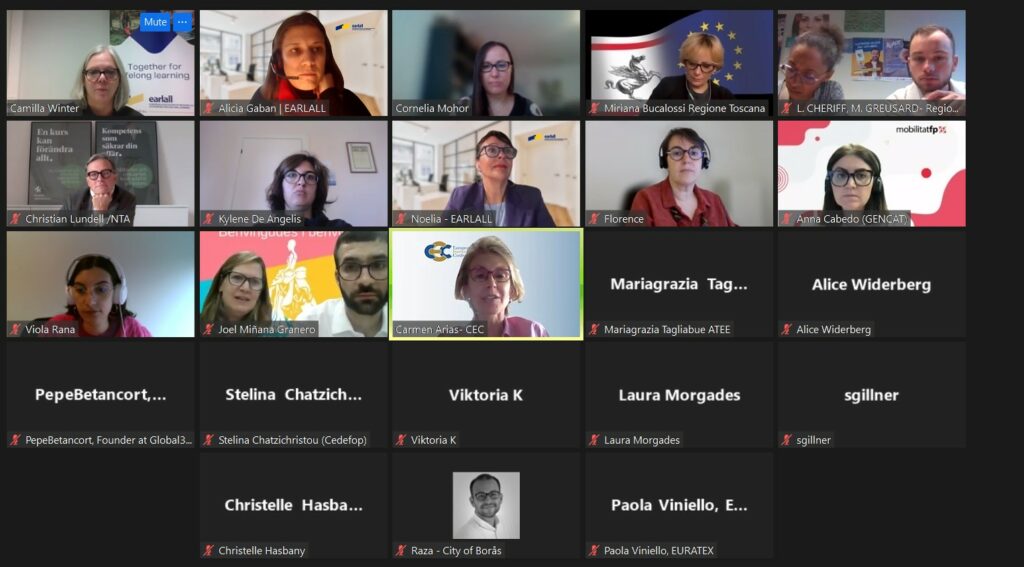
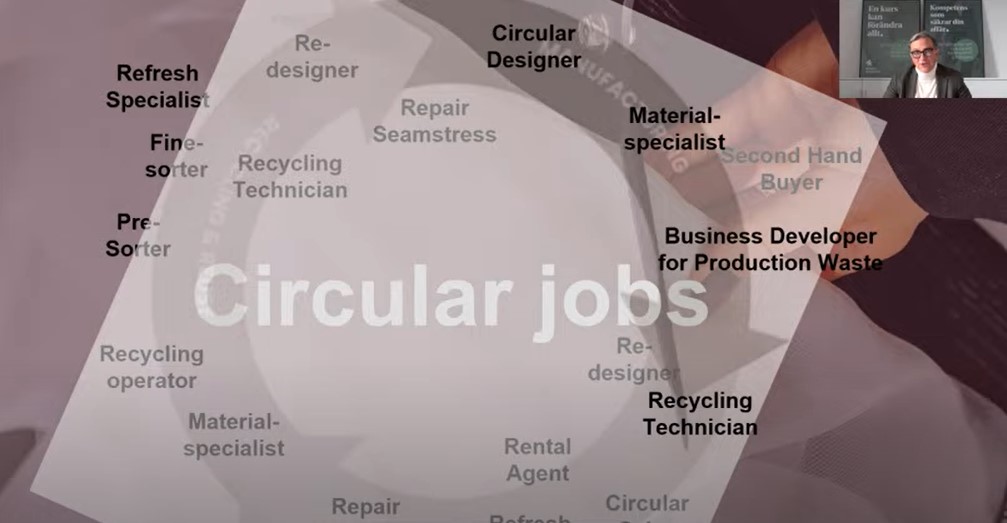
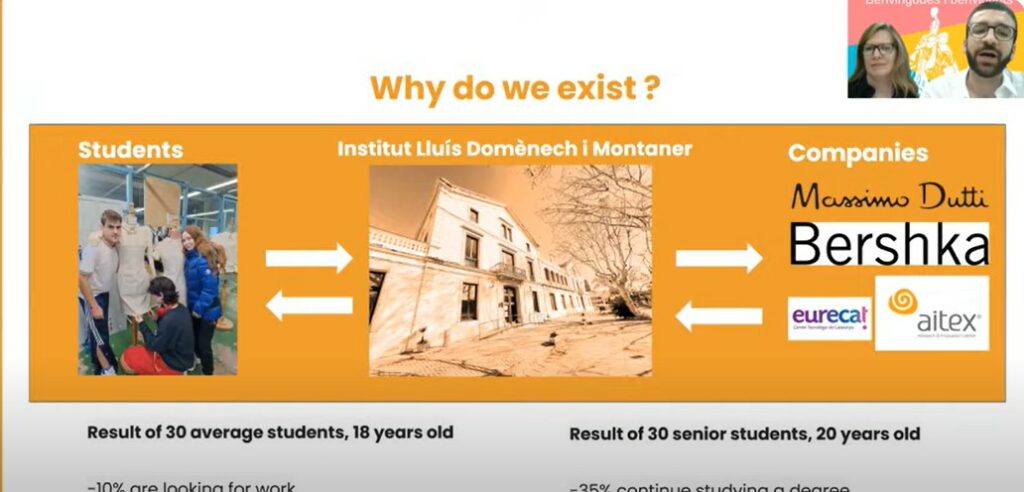
TCLF and Made in Italy Skills Support program in Tuscany Region
Miriana Bucalossi, Head of Apprenticeship and WBL Activities, EU Projects UNIT, from the Tuscany Region, discussed the TCLF and Made in Italy Skills Support program. Tuscany’s fashion sector, particularly its high percentage of female workers, plays a crucial role in the local economy. Miriana also highlighted Italy’s ITS Foundation System (Technological Higher Education System), a non-academic education pathway aligned with company needs, providing students with skills required by the fashion industry. This multi-level governance model ensures that decisions reflect both national and regional priorities. Miriana further elaborated on the Made in Italy Tuscany Academy governance model, highlighting its strategic sectors, including sustainable mobility and new technologies. Established in 2010 MITA is the first Technical College in Tuscany providing a highly professional, technical profile in the world of fashion Founded with the aim of providing young people with qualified job opportunities in the Made in Italy sector, MITA provides a technical/scientific educational program based on the acquisition of skills through a practical, ‘learn by doing’ methodology.
Leather Goods Industry: Challenges and Innovative Solutions in Region Centre-Val de Loire
Lise Cheriff and Marc Greusard, Vocational and Professional Training Department, Region Centre-Val de Loire, discussed the challenges faced by this industry, particularly around the ageing workforce and recruitment difficulties. The luxury sector employs over 37,000 people in France and 5,060 employees in the Centre-Val de Loire (14% of the employees in the French leather industry sector are employed in the Region), with most companies being small and medium-sized enterprises (SMEs). To tackle these challenges, Lise introduced a program linking vocational skills training with employment opportunities. The DEFI project is an inclusive training initiative and was highlighted as a successful example of how vocational education can lead to tangible employment outcomes, even helping to create a vocational high school diploma in the region.
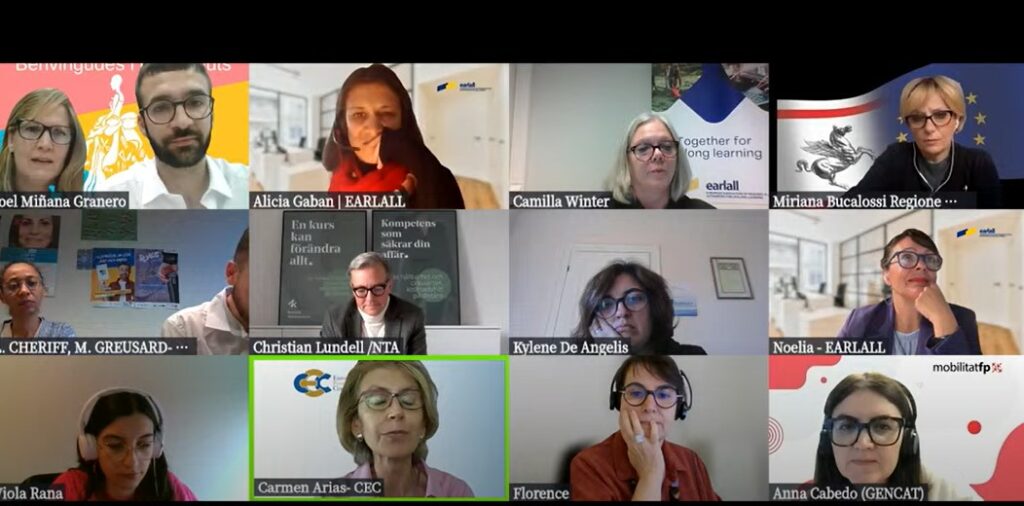
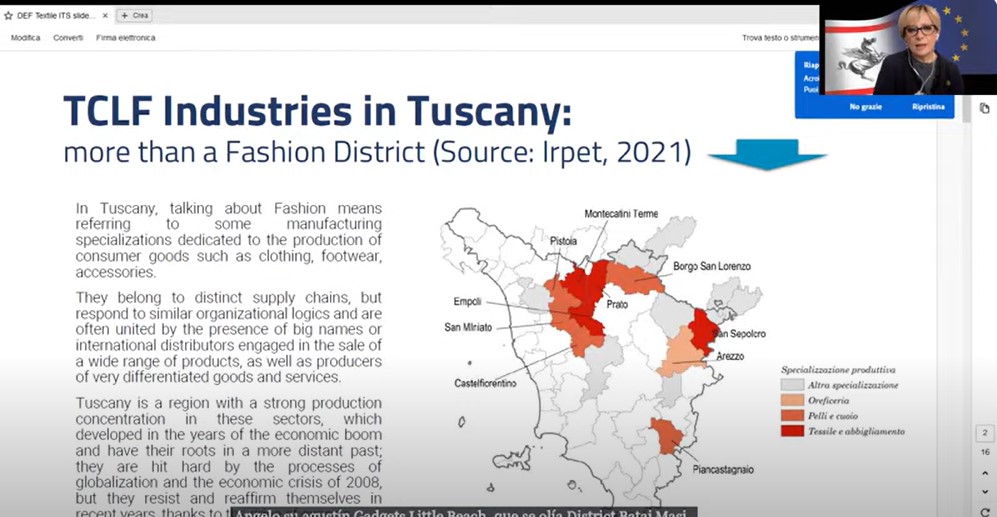
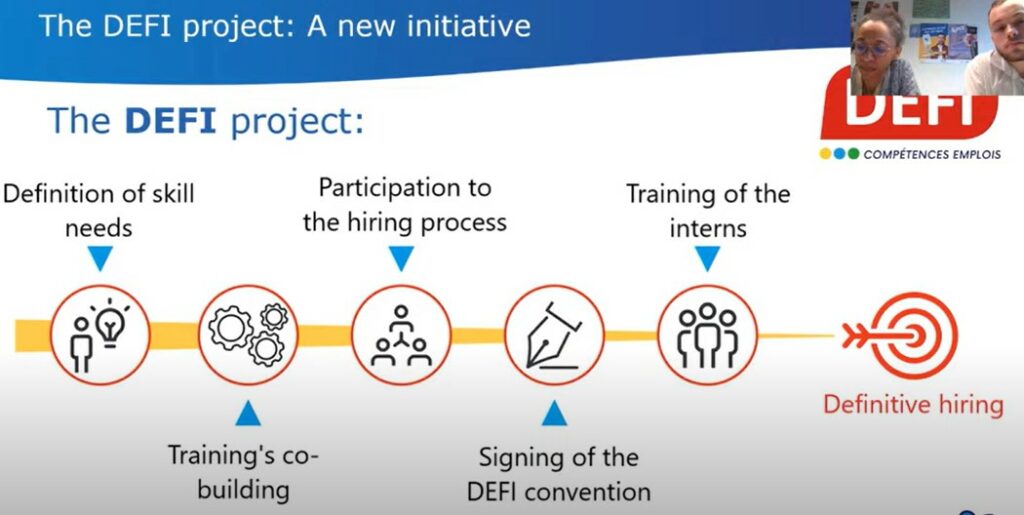
Final remarks
Miriana Bucalossi stressed the importance of involving companies in updating educational curricula and providing real-world opportunities for young graduates. The concept of “Bottega Scuola,” which allows small businesses to act as training providers, was introduced. This initiative aims to bridge the gap between traditional craftsmanship and modern education. Camilla closed the session by encouraging participants to apply for Erasmus+ Key Action 1 funding and confirmed that all materials would be shared. The group also planned a follow-up webinar focusing on the creative and cultural sectors for early next year.
The EARLALL Skills Webinar provided an important platform for discussing the TCLF industries’ skill supply challenges, strategies for promoting lifelong learning, and the importance of partnerships between educational institutions, companies, and governance bodies. By fostering innovation, embracing sustainability, and focusing on tailored education pathways, the TCLF industries can meet the demands of the modern workforce and continue to thrive in the global market.
The next sectoral webinar will be focused on the Creative and Cultural Insdustries across European Regions
Resources:
- Speakers presentations
- Christian Lundell CEO of the Nordiska Textilakademin presentation
- Watch the recording
- Factsheet
TCLF EU Pact for Skills: Find out more about the Skills Partnership for TCLF industries




